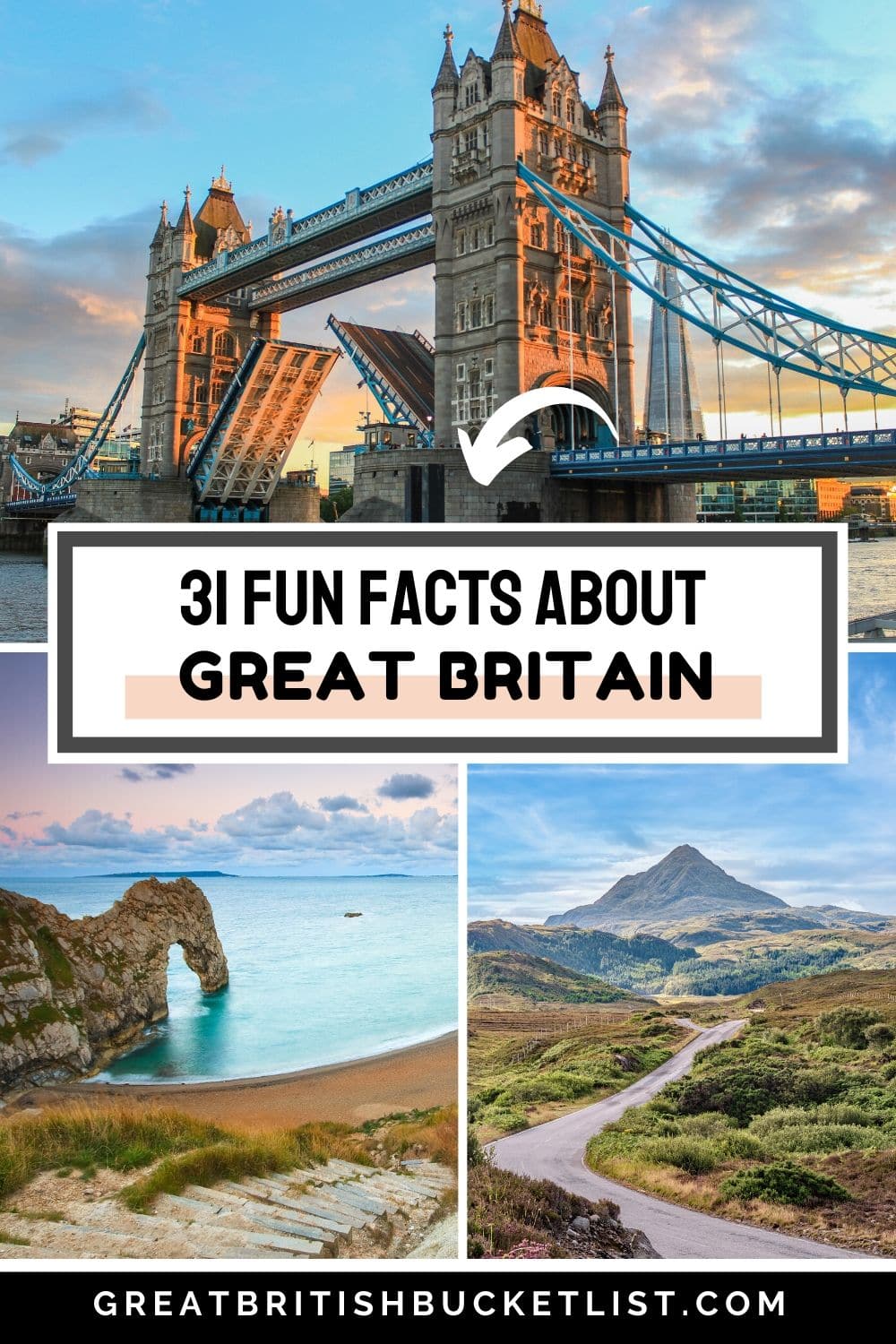These fun facts about Great Britain are guaranteed to surprise you.
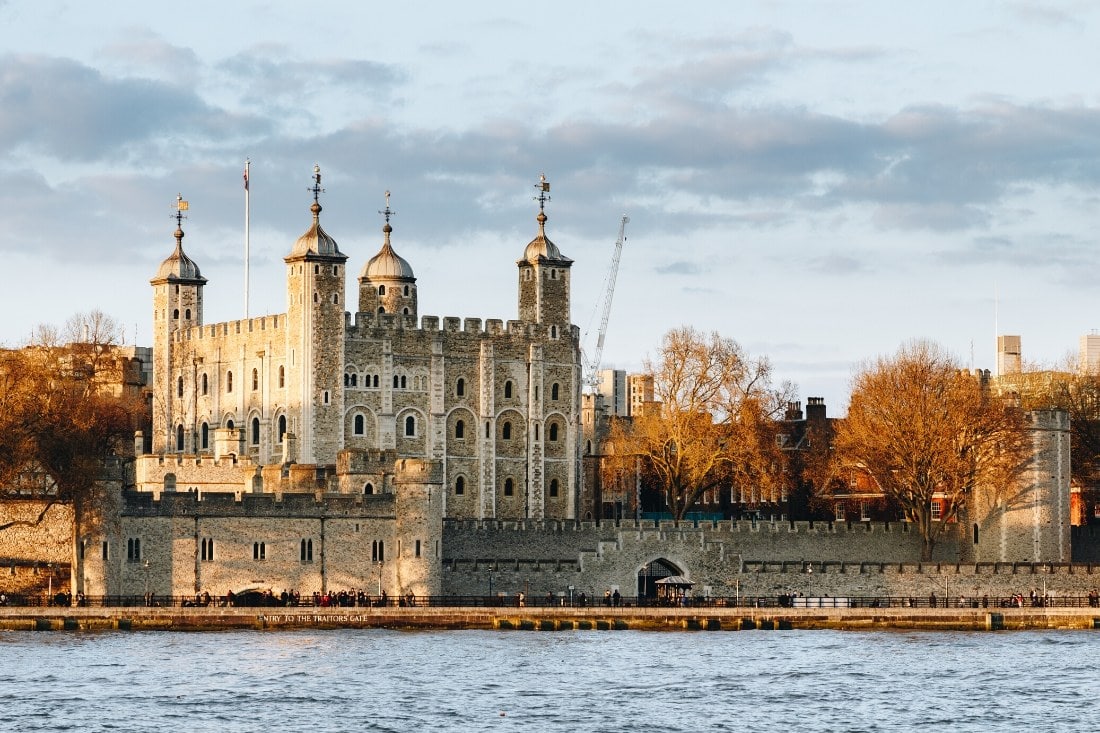
Great Britain is a varied island, filled with quirky stories, intriguing history and cultural traditions. For a relatively small destination, there are a lot of interesting tales to be told.
We’ve loved learning more about our home nation as we’ve researched facts and information for our posts on the Great British Bucket List. All of that fact-finding has led us to this epic blog filled with fun facts about Great Britain. There’s just too much going on here, not to share it!
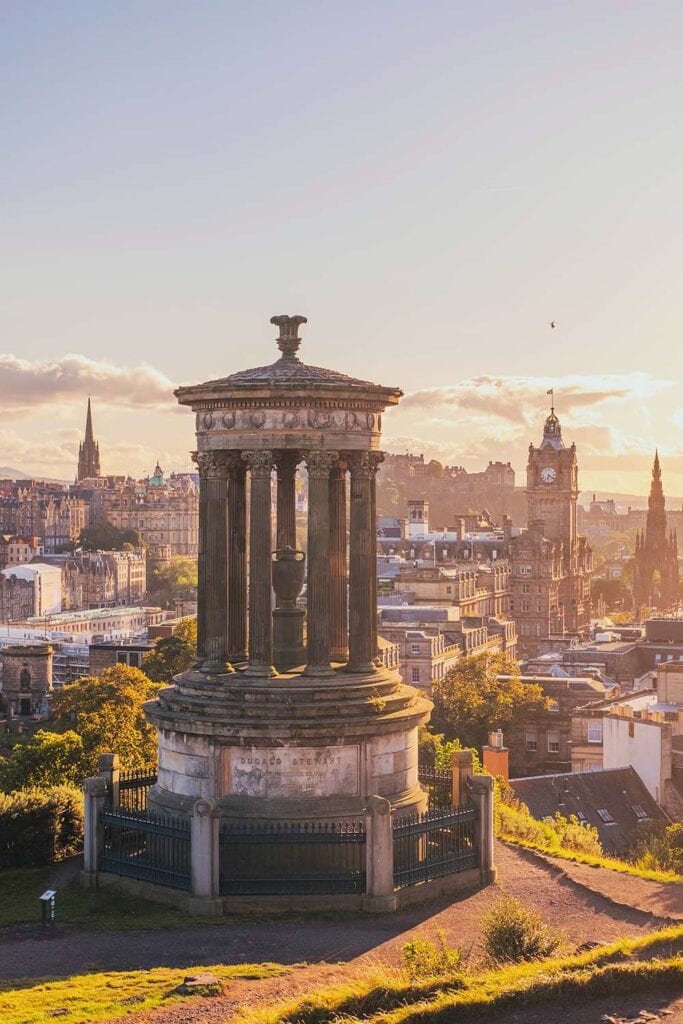
From myths and legends about monsters and ghosts, to facts about The Queen and things you never knew about British cuisine, this guide is going to show you a surprising side to Great Britain.
Did you know golf was invented in Scotland? Do you know the one person who doesn’t require a passport? What about the Britain’s most dangerous creatures – could you name them?
These facts will have you shouting “I never knew that about Great Britain!”
Time to improve your knowledge (and get you acing the next pub quiz) with these quirky, interesting and downright fun facts about Great Britain!
And if you need a little inspiration or information, check out our other site Fun Facts About. This website is full of interesting facts that’ll blow your mind, so take a look now!
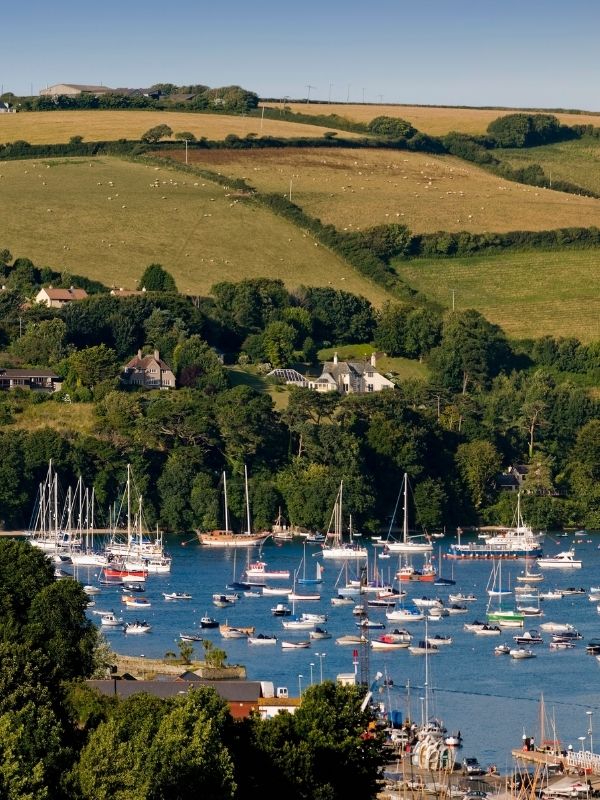
31 Fun Facts About Great Britain
1. Most people refer to the clock tower next to the Houses of Parliament as Big Ben. However, that is only the name of the 13-tonne bell inside. The actual tower is known as St. Stephen’s Tower.
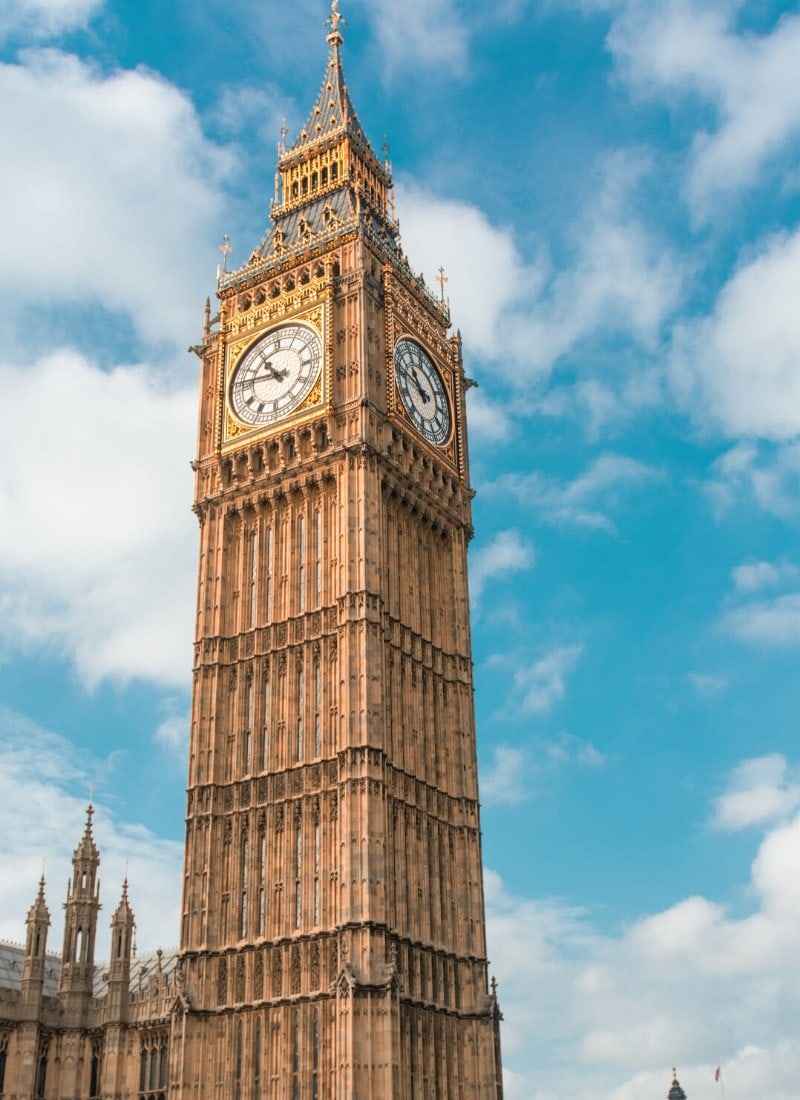
2. The Brits invented the first adhesive postage stamp used in a public postal system, back in 1840. The ‘Penny Black’ had a picture of Queen Victoria on it, and as the name suggests, cost one penny. Before that time, it was usually the recipient who paid the postage price, which varied according to how far the letter had travelled.
3. After the Penny Black stamp came the Penny Red. This was introduced as once a Penny Black had been used, the post service would cross the stamp out in red to show it had been used.
Lots of people discovered you could easily wipe this off and reuse the stamps. Once the Penny Red came in, black ink was used to cross out the stamp, making them much harder to reuse.
4. Golf was invented in Scotland, and can be traced back to 1457. However, it was outlawed for a while by King James II of Scotland, as it detracted from the army’s training!

5. Meanwhile, the old golf course at St Andrews Links in Fife, Scotland is the oldest golf course in the world. There’s an historic charter dating back to 1552 which mentions people can continue the “playing at golf, futball, schuting at all gamis, with all uther maner of pastyme as ever thai plais.”
6. The Welsh town of Llanfairpwllgwyngyll-gogerychwyrndrobwlllllandysiliogogogoch is the longest name of a town in the world. If you want a photo with the name, head to the train station where the sign stretches right down the platform!
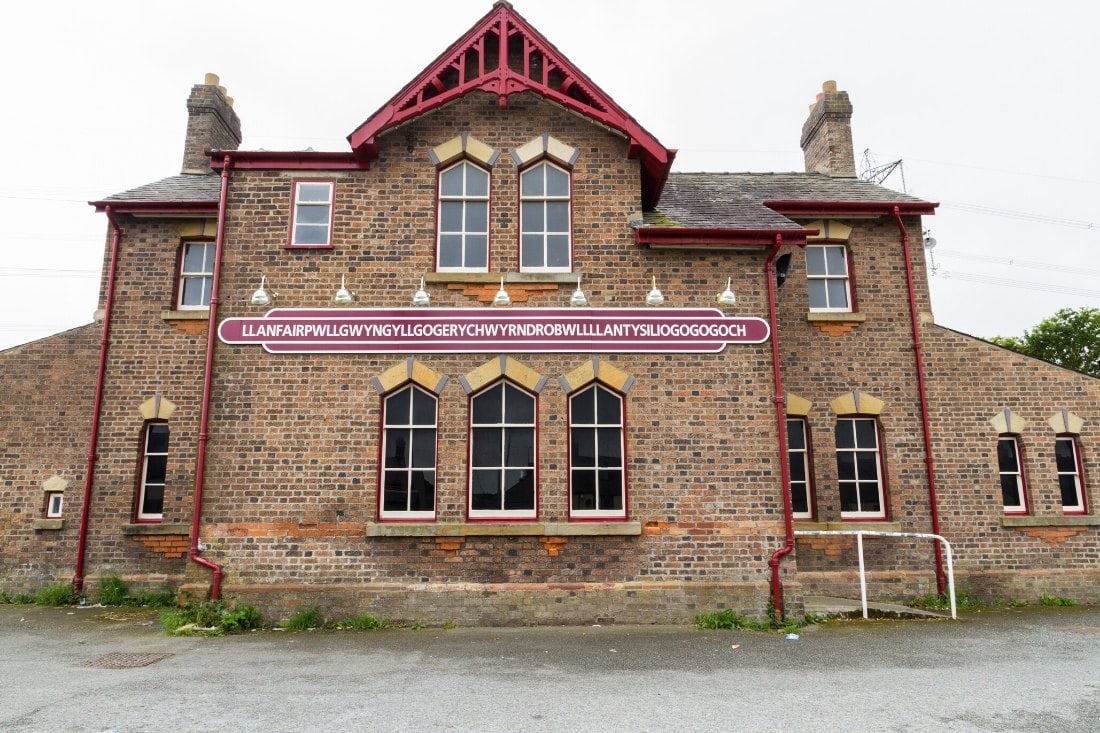
7. Can you believe the Brits invented speeding tickets? The very first speeding ticket was issued to a driver named Walter Arnold in Kent in 1896, after he was caught going four times the speed limit. As the speed limit was only 2mph, he was fined for reaching a top speed of 8 mph!
8. It’s thought that Ian Fleming used a bus route close to his home as inspiration for James Bond’s codename. The route 007 used to go from Canterbury to the Kent coast.
9. Windsor Castle is the oldest and largest inhabited castle in the world, being in use since the 11th century. It’s still one of the official residences of The Queen, as well as having some areas accessible to the public on tours.

10. Among Queen Elizabeth II’s more bizarre titles is ‘Seigneur of the Swans’. Officially, the reigning monarch owns any unmarked mute swan in open water in both England and Wales… so most of the swans in Britain.
To go with this unusual title is the census that takes place on the Thames each year in July, called Swan Upping.
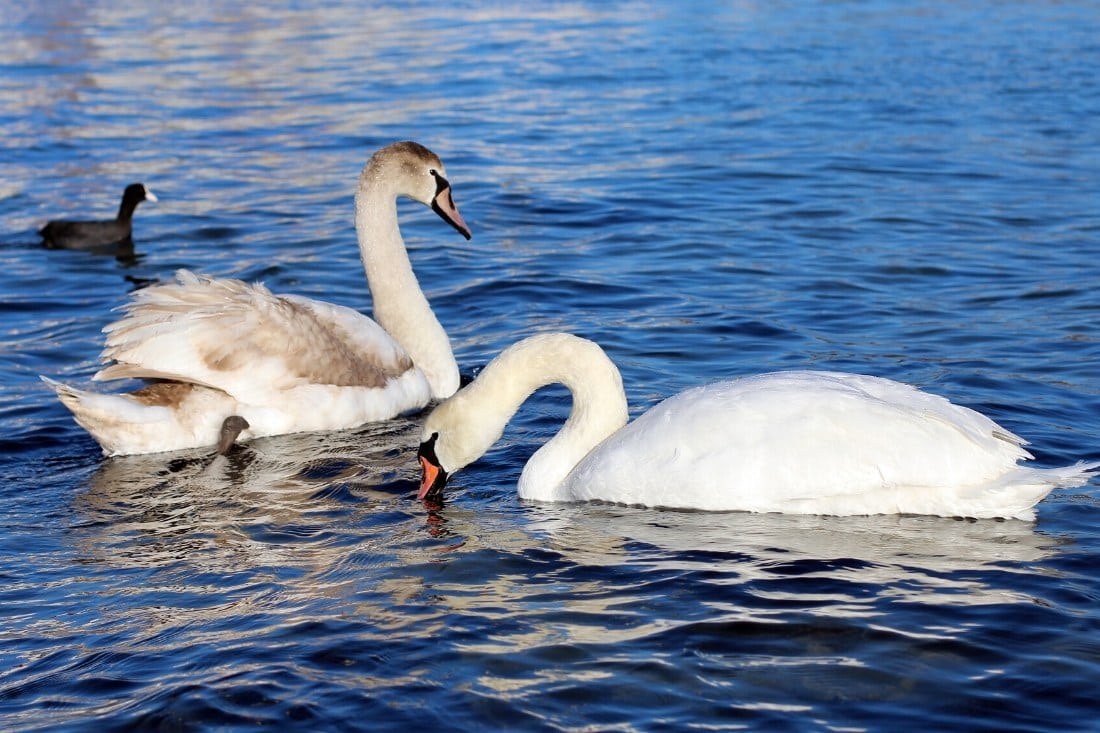
11. Continuing with our swan friends… did you know killing swans was made illegal in the 1980s? If you’re caught, you’ll face prosecution. It’s thought only The Queen would be exempt from being penalised… so she could kill one and have it for dinner if she really wanted!
12. Wales’ capital city Cardiff is known as the ‘City of Arcades’ as it is home to the highest concentration of Victorian, Edwardian and contemporary indoor shopping arcades of any British city.
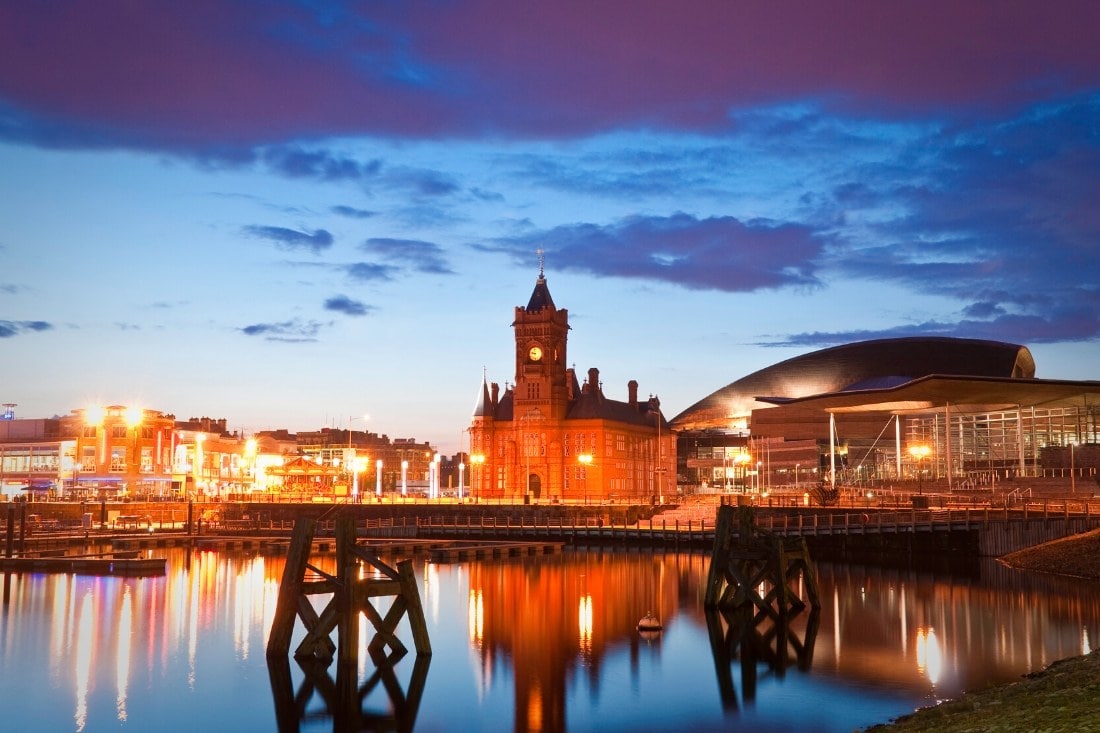
13. Great Britain is home to the shortest scheduled passenger flight in the world. The 2.7 km flight from Westray to Papa Westray in the Orkney Islands in Scotland has a scheduled time of one and a half minutes, although the record stands at 47 seconds. Tickets with Loganair start from £7.25 one way.
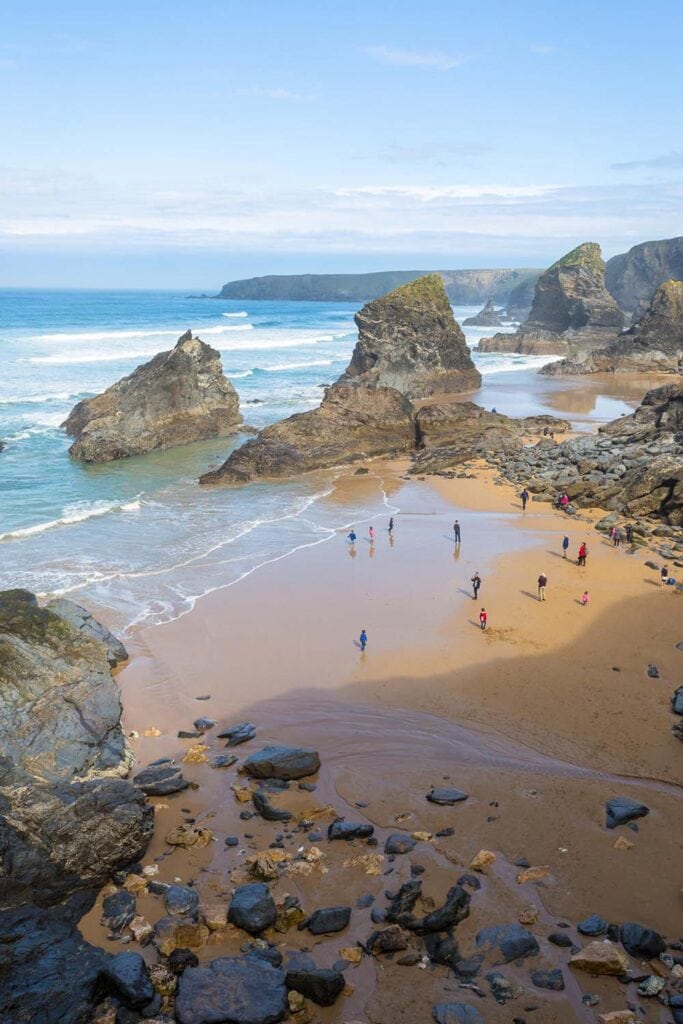
14. One of England’s famous foods, the Cornish pasty, was invented for tin miners in Cornwall to eat on their shifts. There’s a thick pastry crust which was used to hold the pasty, so that the miners didn’t contaminate their meal with their hands.
Often, they had a savoury filling at one end and a sweet filling at the other, so it was like a main course and dessert in one! Find out more fun facts about Cornwall here.
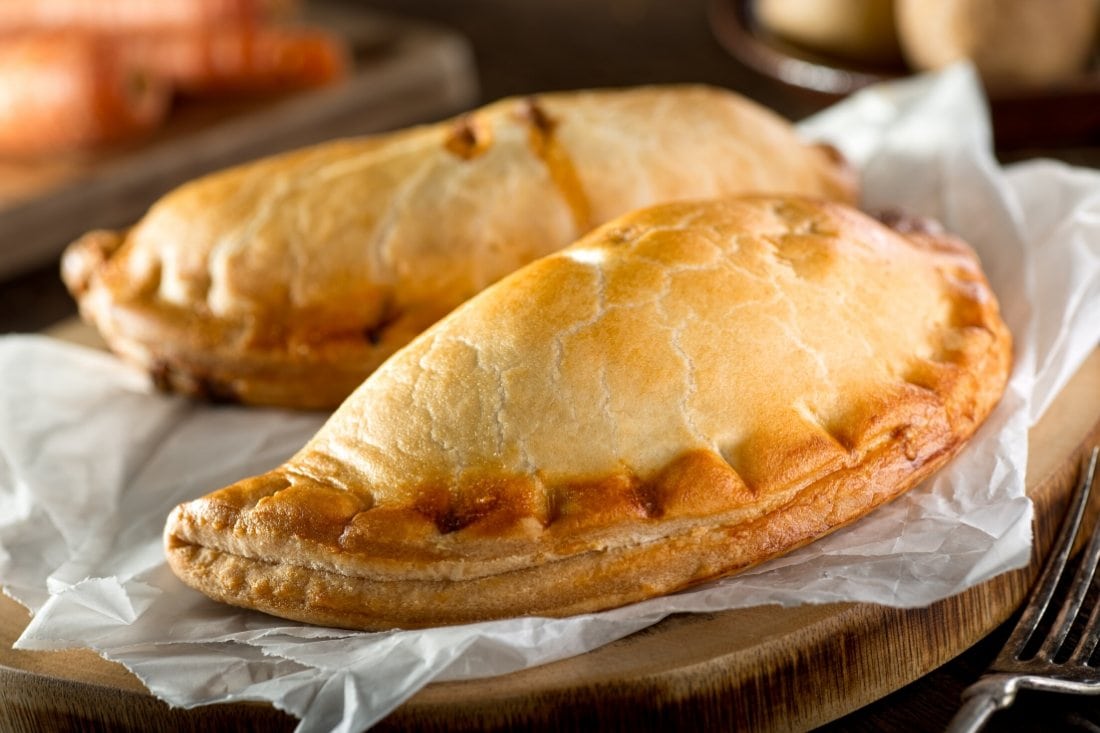
15. Did you know the chant ‘oggie, oggie, oggie, oi, oi, oi’ also has its roots in Cornish pasties too? Nope this was new to us too during our research!
Apparently, ‘oggie’ comes from hoggan, the Cornish word for pasty, and it was shouted when the pasties were ready. The tin miners shouted ‘oi, oi, oi’ to say thank you!
16. The record for the world’s shortest war is held by Britain and Zanzibar. The Anglo-Zanzibar War in 1896 lasted just 38 minutes.
17. The British drink more than 60 billion cups of tea a year – around 100 million each day. While the drink’s origins go way back, it became a staple of the British culture in the 1700s, and by the middle of the 18th century, tea had replaced gin as the most popular drink in Britain.
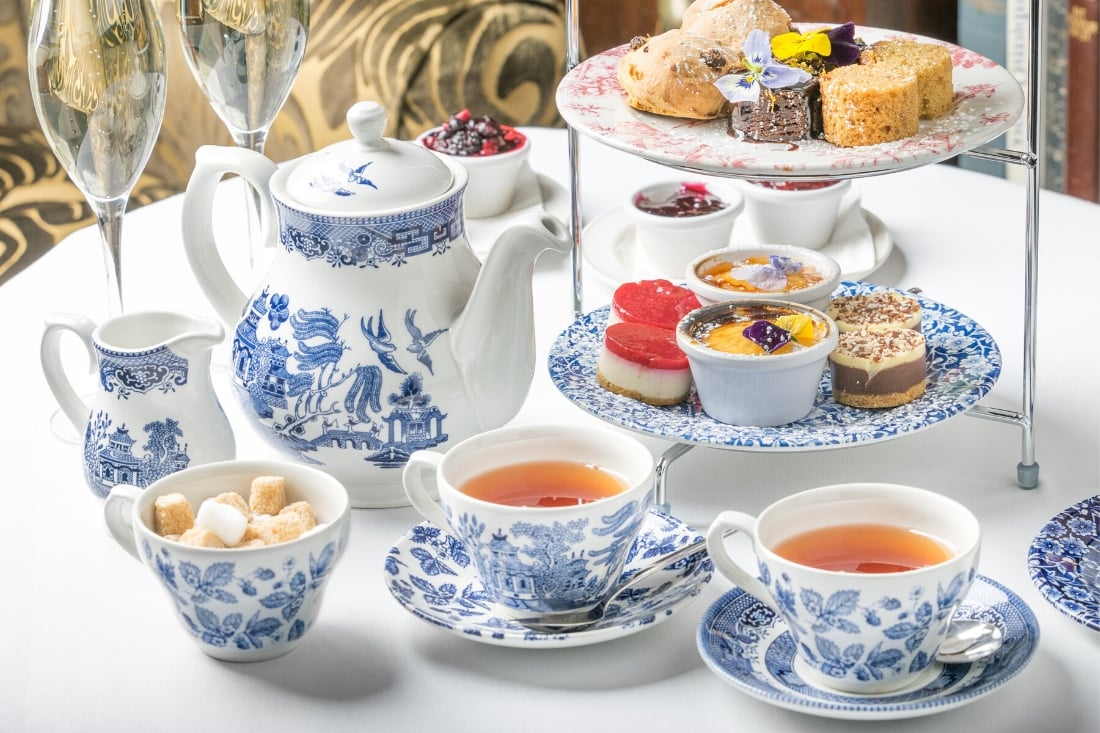
18. Most people travel on the tube for speed and convenience but there’s one route in particular which is utterly pointless. If you travel from Leicester Square tube station to Covent Garden tube station, it takes longer on the underground than walking, as the locations are minutes apart.
19. Shakespeare has been credited by the Oxford English Dictionary for increasing the number of words in the English language. It’s thought that his vocabulary contained over 20,000 words, and around 3,000 of these were added to our language.
Words attributed to Shakespeare include: gossip (The Comedy of Errors), rant (Hamlet), zany (Love’s Labour’s Lost) and alligator (Romeo and Juliet). How’s that for an interesting fact about Great Britain?

20. Scottish mountaineer, Sir Hugh Munro, made a name for himself by compiling a list of mountains in Scotland measuring over 3,000 feet.
While some of the newer surveys discredited a few of his mountains as being a little short, 283 on the list that were confirmed. This led to any Scottish mountain over 3,000 feet being referred to as a ‘Munro’. One of the most famous mountains in Scotland is Ben Nevis – you can find out all about it here.
21. While Loch Ness may be famous for the mysterious sightings of Loch Ness monster (also known as Nessie!) it also holds the record for being the largest body of freshwater in Britain by volume. It also keeps a temperature of 6°C in temperature all year round, not even freezing in the coldest Scottish winters.
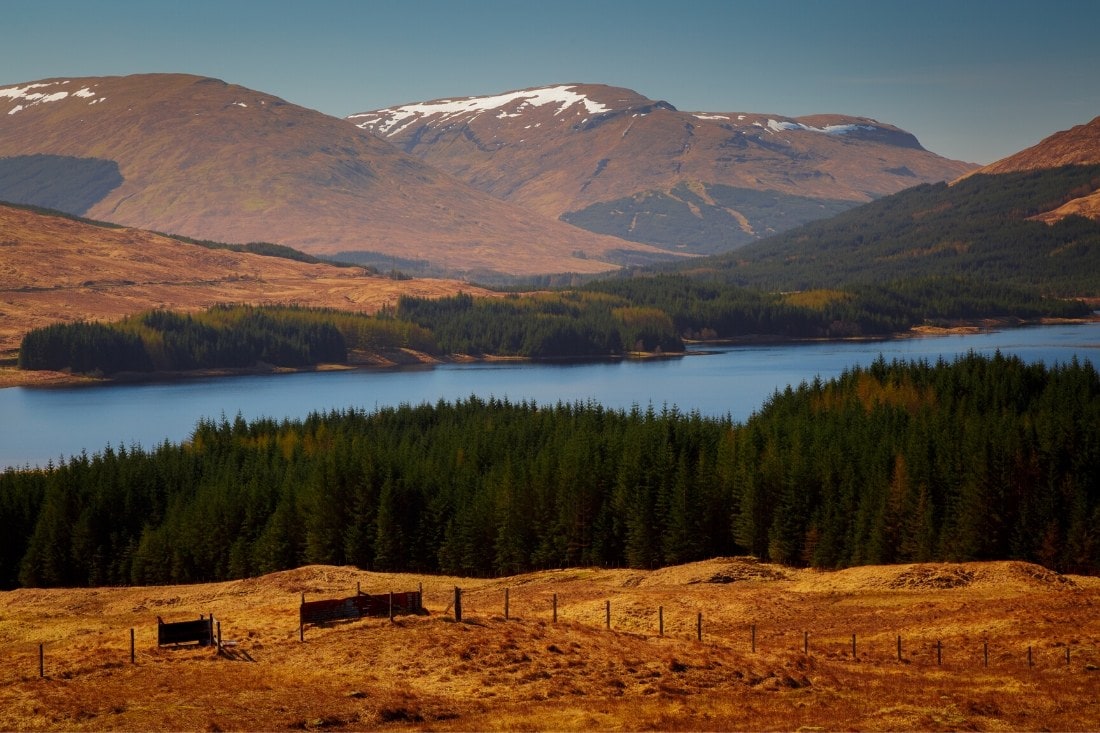
22. One of Britain’s most bizarre events is the annual cheese-rolling competition that takes place on Coopers Hill in Gloucestershire. At the top of the hill a 3kg Double Gloucester cheese is sent rolling down.
Competitors race after it and the first to cross the finish line wins the cheese! The aim is to catch the cheese, but that’s tricky when it reaches speeds of up to 70 mph. Sadly, due to health and safety reasons (yep, there were injuries!) the cheese has been replaced by a foam replica.
23. The adder is the only venomous snake found in Britain and according to the NHS, around 100 adder bites are reported in the UK each year, mostly in the summer months. They’re not particularly dangerous, but a bite will cause mild discomfort.
24. While around 660 species of spider are found in Britain, the most poisonous is the false widow spider, which it’s thought was introduced to Britain from the Canary Islands. They look pretty scary, but their bites are relatively harmless.
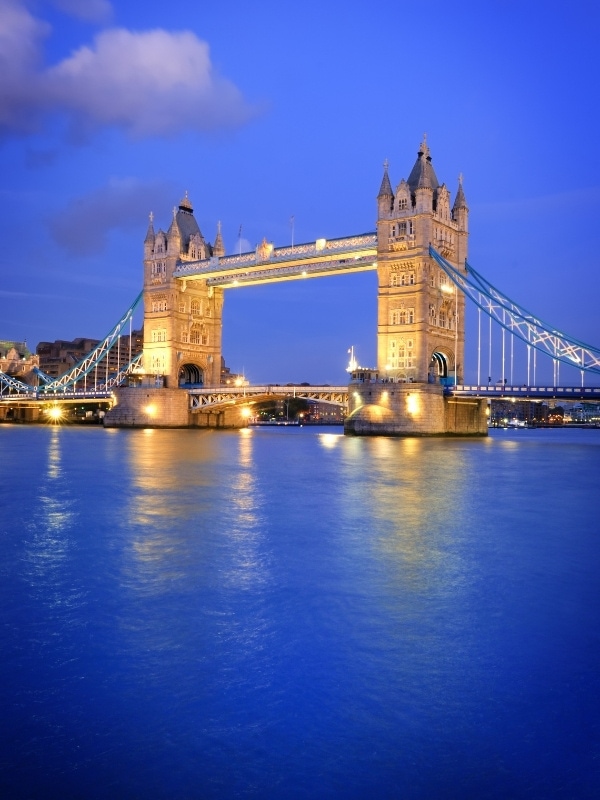
25. The Tower of London has had many famous inhabitants, but arguably the most famous are the six black ravens. Charles II wrote a royal decree which said that if any of the birds flew away, then the kingdom would fall.
These days, they clip their wings to make it impossible (as well as having a few spares ready!) This is one of our favourite facts about Great Britain!
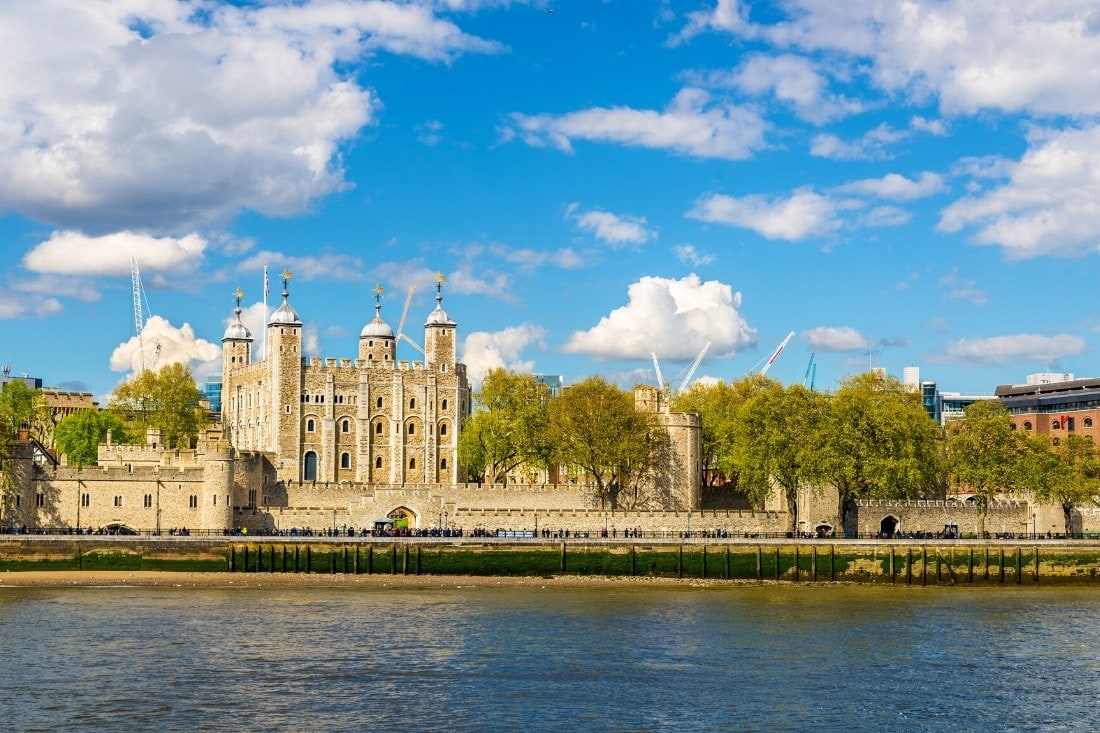
26. While you’d assume The Queen has the power to go wherever she likes, she’s not allowed to enter the House of Commons. This law has been in place since 1642, when King Charles I visited the Commons to arrest five MPs in the run-up to the English Civil War. When she does give speeches at the State Opening of Parliament, she delivers them from next door in the House of Lords.
27. The Queen is also the only person from Great Britain who doesn’t need to possess a British passport in order to travel. The royal family website states, “as a British passport is issued in the name of Her Majesty, it is unnecessary for The Queen to possess one.
All other members of the Royal Family, including The Duke of Edinburgh and The Prince of Wales, have passports.”
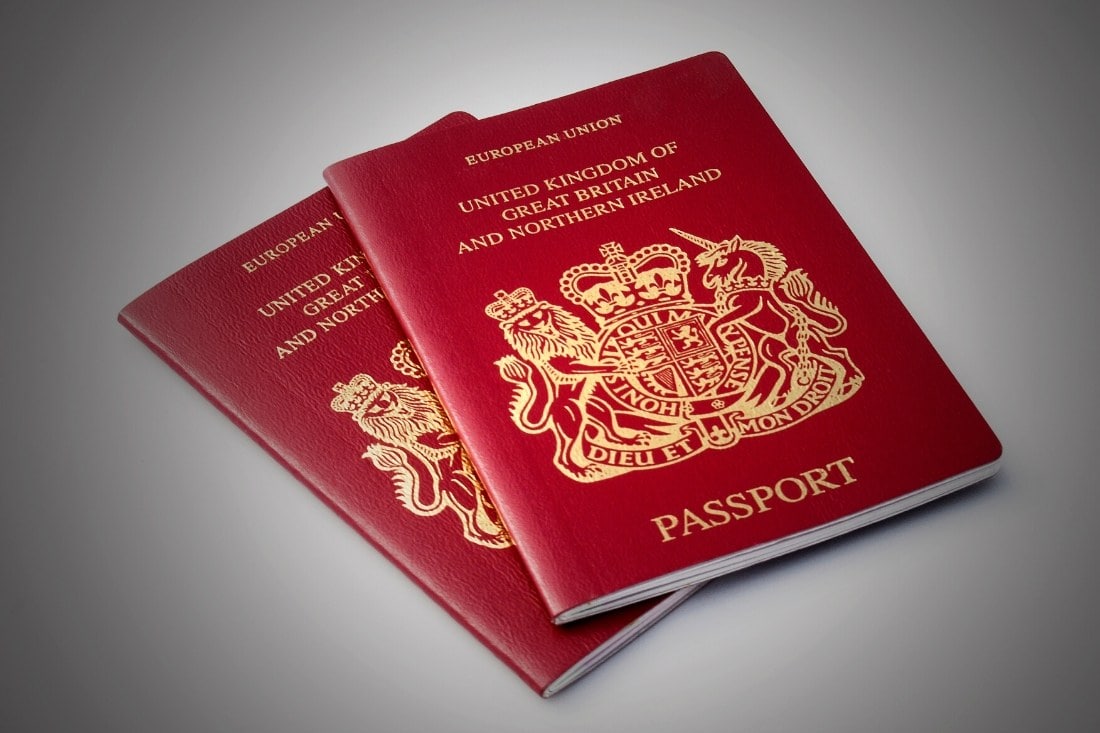
28. The most famous British dishes include fish and chips, roast dinners, shepherd’s pie, bangers and mash and a classic full English breakfast.
However, when polled on their favourite dish, Brits voted for chicken tikka masala. Incorporating Indian chicken tikka with a thick sauce, it’s often seen as an example of Britain’s multiculturalism.
29. Cockney rhyming slang is still used regularly across London and the East End, with many of the words and phrases containing words that rhyme with the words they’re replacing. For example, dog and bone means phone, trouble and strife means wife, Adam and Eve means believe and apple and pears means stairs.
30. Buckingham Palace might be one of the most prestigious buildings in London, but did you know it was built on the site of a gay brothel? That surprised us too!
31. According to experts, the British accent changes every 25 miles, and it’s thought a lot of the accents have developed as a result of geographic location, early settlers and immigration.
For example, it’s been said that until the mid-1800s Liverpudlians sounded similar to those from Manchester, but once the port industries boomed, the Irish and Welsh labourers gradually influenced the accent to give it a Scouse tone.
It’s also thought that Anglo Saxons arriving from various parts of Europe and settling in different areas, created their own regional accents.
Who’s ready for some more fun facts?
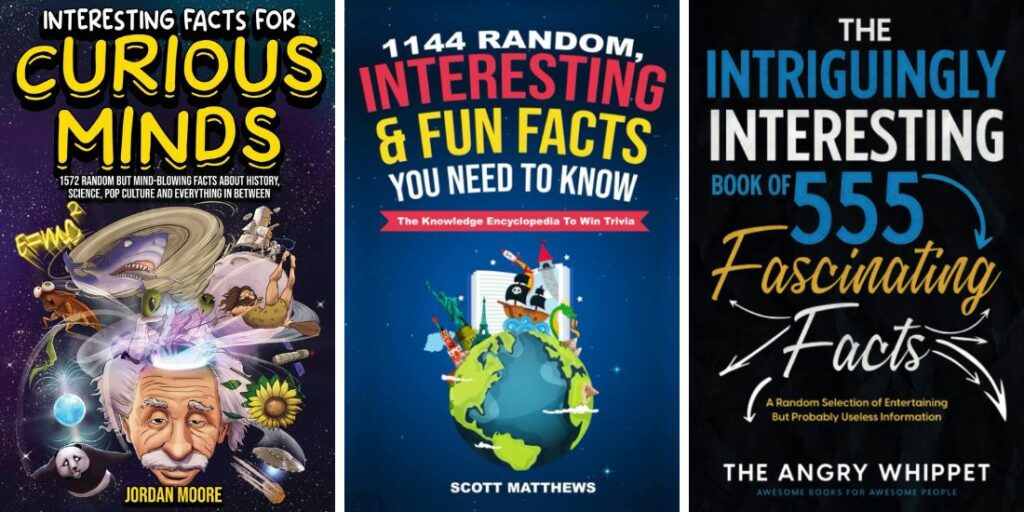
If you’re looking for some recommendations, these are a few of our favourite fact books to buy. We use these when planning fun quiz nights with family and friends. They’re also great for entertaining the kids too!
- Interesting Facts for Curious Minds
- 1,144 Random, Interesting & Fun Facts You Need To Know
- The Intriguingly Interesting Book of 555 Fascinating Facts
We hope you’ve enjoyed learning all about this fascinating island in our fun facts about Great Britain! Let us know your favourite fact.
Enjoyed this post? Pin it for later…
